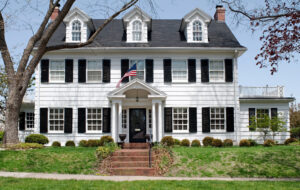 The Supreme Judicial Court has provided a resounding victory for nonprofits assisting disabled individuals to reintegrate into their communities. In McLean Hospital Corporation v. Town of Lincoln, the Court reaffirmed that the Dover Amendment, which exempts educational uses from local zoning ordinances, is applicable to uses that have both educational and therapeutic purposes. A copy of the slip opinion can be found here: McLean Hospital Corporation v. Town of Lincoln
The Supreme Judicial Court has provided a resounding victory for nonprofits assisting disabled individuals to reintegrate into their communities. In McLean Hospital Corporation v. Town of Lincoln, the Court reaffirmed that the Dover Amendment, which exempts educational uses from local zoning ordinances, is applicable to uses that have both educational and therapeutic purposes. A copy of the slip opinion can be found here: McLean Hospital Corporation v. Town of Lincoln
McLean Hospital sought to establish a program in a home in Lincoln for adolescent boys who suffered severe emotional and behavioral issues. The program employed DBT (dialectical behavior therapy) to train clients to regulate their social and emotional behavior with the goal of reintegrating participants into their communities. As with many group homes, the program was opposed by abutters. The McLean Court had to decide whether the use was exempt from zoning pursuant to G.L. c. 40A, section 3, which provides that “[n]o zoning ordinance shall . . . prohibit, regulate or restrict the use of land or structures . . . for educational purposes . . .. ” The Court found that McLean Hospital’s use was “well within the ‘broad and comprehensive’ meaning of ‘educational purposes’ under the Dover Amendment.”
The Court’s decision was firmly grounded in prior case law adopting an expansive definition of “educational purposes.” For the use to be exempt under the Dover Amendment, a residential program must have an “educationally significant goal” and the goal must be the “primary or dominant purpose” for which the land and structures are to be used. The Court stated that because the McLean program “instills ‘a basic understanding of how to cope with everyday problems and to maintain oneself in society'” the program had an educational goal. Relying on the structured approach to educating program participants in noticing and regulating their behavior, the Court also determined that the primary or dominant purpose of the program was educational.
Significantly, the Court rejected two other arguments. First, the lower court had created a novel theory that programs that focused on “inward-facing skills” (as contrasted with skills that were “outward-facing”) would not qualify as educational. The Court rejected this theory. (The Land Court seems to have developed this dichotomy out of thin air. There was simply no basis in prior law to support such a theory.) The Court also refused to create a bright-line difference between educational and therapeutic purposes. The Court stated that “in situations of this type, an attempt to sever that which is educational from that which is therapeutic is ordinarily a futile exercise.” Moreover, the Court held that programs of this type were not medical in nature even if there were medical personnel on staff.
The decision in McLean reinforces the important protections for providers of services to persons with emotional and psychological challenges. This population is frequently marginalized. Group homes that serve them often opposed by abutters whose perspective is that such individuals should be housed somewhere else (“not in my backyard”). The Court in McLean has provided significant support for those providers wanting to address the needs of these clients in the community.
